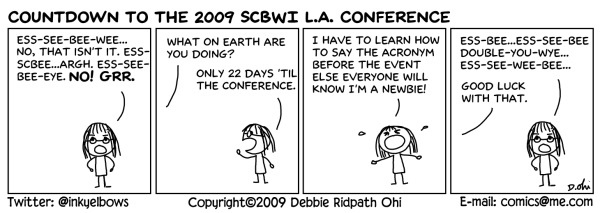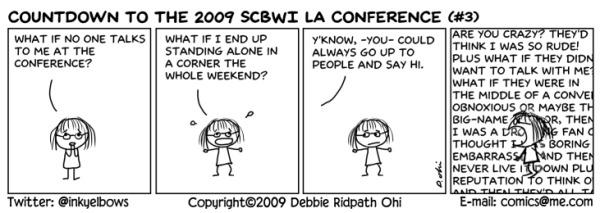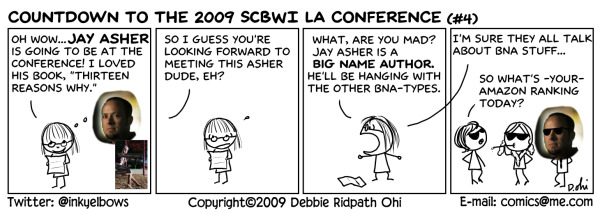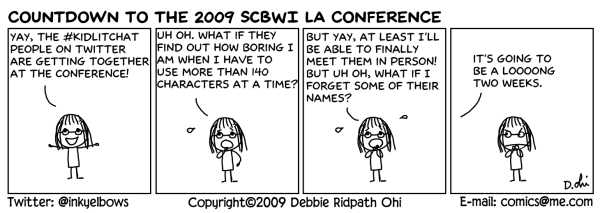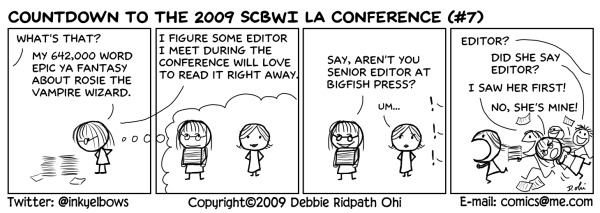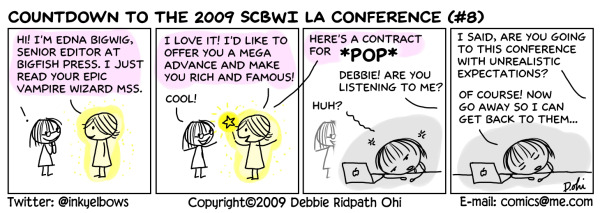1. What do you write?
2. How did you become a writer/get started writing?
3. What are you working on now?
4. Have you ever been published or where can I find your books?
Of course, you need to keep in mind who’s asking. Some of the writing lingo we use as writers may not be familiar to non-writers. I recently had a conversation where I ended up explaining the term “dystopian” in a hallway of my school. (Lucky for me, I can now refer to the TV series Revolution). And I’m often asked to explain what “middle grade” means – not to be confused with “middle school”, which doesn’t necessarily capture the same age group. There’s also the difference between YA and MG (see MG vs YA: What's the Difference by MiG Writer Debbie Ridpath Ohi for clarification), which isn’t always as clear cut as we’d like to think.
Of course, at SCBWI, everyone will know these distinctions, which will make conversations and explanations that much easier. I can concentrate on what I want people to know about me and my writing. (Because even though I’m an introvert, I do want people to read and know about my work.) It will also be useful to remember that I can draw on these questions when I’m trying to think of what to say to other writers that I meet (since I’m sure they’ll know the answers and feel comfortable talking a little about their work), along with these:
5. Have you been to one of these conferences before?
6. Do you have any tips for a newbie?*
Painful as it may be for someone who spends a lot of time on the computer, it's important to be able to articulate something sensible about what I'm actually doing for all those hours (so I'd better not mention all the time I spend reading blogs and, lately, tweets.) Can you think of any other questions a writer needs to be able to answer?
*For more tips on calming your nerves before attending a big conference, check out Debbie Ridpath Ohi’s comics for conference newbies.




